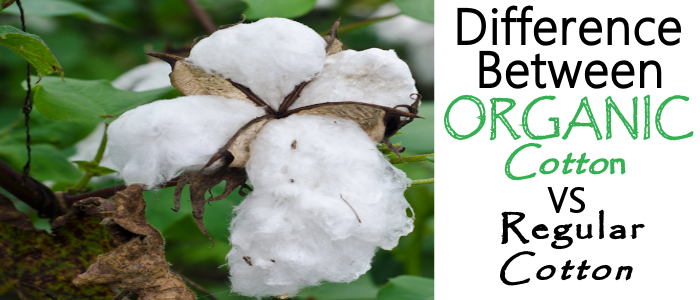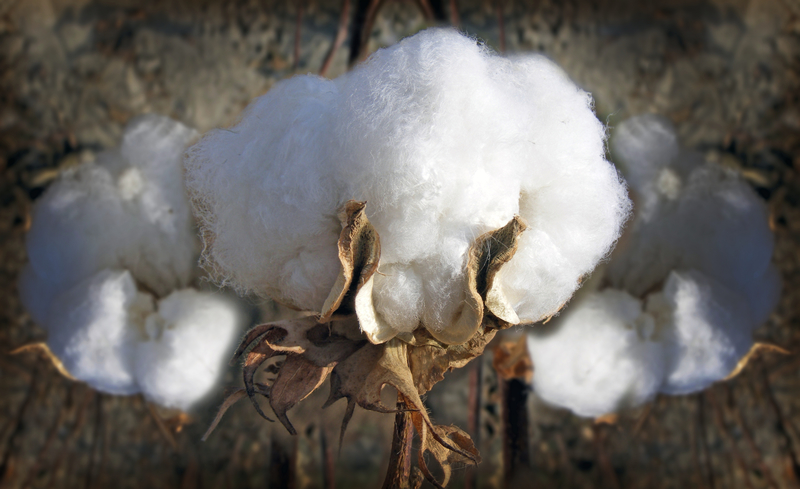What is the Difference Between Organic Cotton and Cotton?
It is common to wonder what is the difference between organic cotton and cotton? Cotton in general, is a natural fiber that has many uses. However, there are several differences between conventional cotton and organic cotton fibers. One key difference is that organic cotton products are made without toxic chemicals. That’s because in order to be called organic, a requirement is that the cotton is grown without them. While regular cotton growing starts with seeds that are genetically modified, certified organic cotton eliminates any use of GMOs. When considering what is the difference between organic cotton and cotton, there are two major factors. The impact on the environment and the impact on the health of cotton farmers are the biggest differences. However, the benefits don’t stop there. Consumers, the end users, receive benefits in multiple ways too!
Organic Cotton Harvesting

The difference between an organic cotton textile and an inorganic cotton textile starts on the farm. What is the difference between organic cotton and cotton harvesting processes? There are actually several key aspects of the process that differentiate the two. The difference is in nearly everything including the land, chemicals – or lack thereof, energy, water and soil. To become certified organic, proof of the process must be provided to the certifying organization. Also, certified organic operations are subject to random and/or scheduled visits to ensure that the organic processes are being implemented. There are several organizations that offer certifications. In the United States, some used include USDA and GOTS. Each system has a different method for evaluating but basic criteria include meeting farming standards and qualifications.
The Organic Crops
The first difference is in the size of acreage used. Less usable cotton comes from the organic crop. This means operations that make organic cotton must start with a larger growing operation. Interestingly enough, these larger plots of land still save natural resources. It is the way in which the land is prepared and managed throughout the cycle that makes all the difference.
Water Conservation
The second difference between organic and non-organic cotton farming is in land usage. By rotating crops, organic farms can prevent the complete depletion of nutrients in the soil. Ultimately, this crop rotation maintains the soil’s fertility. The more fertile the soil, the less water it takes to grow crops within it. To produce an organic cotton crop, the farming process uses approximately 71% less water. Organic cotton farming is able to further conserve water as it relies on rainwater for up to 80% of its water usage.
Weeding vs. Herbicides
Methods of weeding are also different between the two harvesting options. Organic farming of cotton uses intercropping or hand weeding for weed removal, whereas traditional cotton farming relies on chemical herbicides. As eco friendly alternatives, either of these methods is better for the environment.
No Toxic Fertilizers & Insecticides
The cotton industry makes up about twenty five percent of the insecticide sales. Organic cotton uses no chemical insecticides; rather it utilizes botanical pesticides, another safer alternative or none at all. Farmers can even use other plants to lure insects away from the cotton crop. Many of the common insecticides used in regular cotton farming are toxic and some are even possible carcinogens. Crop dusting these chemicals can affect eco systems and communities that surround these farms.
Organic Uses Less Energy Usage
The many differences in harvesting result in less energy consumption by organic cotton production. Energy is saved along the way due to no need for producing fertilizers as well as reduced tractor use. The outcome is that organic cotton utilizes up to 62% less energy to produce when compared to regular cotton. Combined with the water conservation, this results in a massive overall reduction in resource usage.
Organic Cotton Chemical Free Defoliation
At harvest, the organic seed cotton is defoliated using one of two methods, water management or freeze. Rather than relying on chemicals to accelerate the process, organic cotton is sometimes allowed to defoliate naturally upon the seasonal freeze. Water techniques can be used when this is not an option.
Benefits for You
When we talk about what is the difference between organic cotton and cotton, we focus on the benefits. The most direct advantage is the way organic cotton can affect your health concerns. For example, someone suffering from skin conditions such as Eczema, might appreciate organic cotton textiles. Because organic cotton is produced using fewer chemicals than traditional cotton, it can be less irritating. Exposure to chemicals can wreak havoc on our bodies. This is why it is especially important that we limit what harmful toxins we expose ourselves and our children to. What it comes down to is this: organic cotton finished products are considered safer than their non-organic counterparts.
Benefits for Community
Those working on organic cotton farms or living nearby also reap the rewards of a chemical-free process. Farmers enjoy not being exposed to chemical pesticides, herbicides and fertilizers. These workers and their families also benefit from the ability to diversify crops. There is nearly a million people whose livelihood benefits from the organic cotton industry. Only about two hundred thousand are farmers, so you can see the reach of community benefit is wide.
Benefits for Environment of Organic Cotton vs Regular Cotton
In addition to the personal impact of choosing organic cotton products, there are many ecological benefits. Going with organic cotton has a less aggressive impact on global warming, reduces soil erosion, and saves our natural resources. So what is the difference between organic cotton and cotton? Well, the difference is seen in what it can do for you and for the environment.
Organic Cotton Multiple Uses:
Organic cotton can be used to make multiple products. It is not uncommon to see cotton used for applying cosmetics, or bandaging an injury. Clothing is likely one of the most common uses for cotton. However, there are lesser known uses. By-products of organic cotton can be used in pharmaceuticals and even in food. In the sleep industry, organic cotton mattress covers and sheets are a desirable replacement for other materials.
iAdjust Organic Mattress
If you are interested in knowing what is the difference between organic cotton and cotton, you might be interested in the iAdjust organic series. When you purchase an iAdjust All Organic Latex Mattress from Rest Right Mattress, it comes with an organic cotton cover. The cover is just one aspect of this organic latex mattress. This particular mattress has certifications from Oeko-Tex, and GOTS (Global Organic Textile Standard). In addition its materials come from a Forest Stewardship Council Certified Forest to ensure sustainability and environmental responsibility. If buying organic cotton is important to you, check out this all organic mattress!


